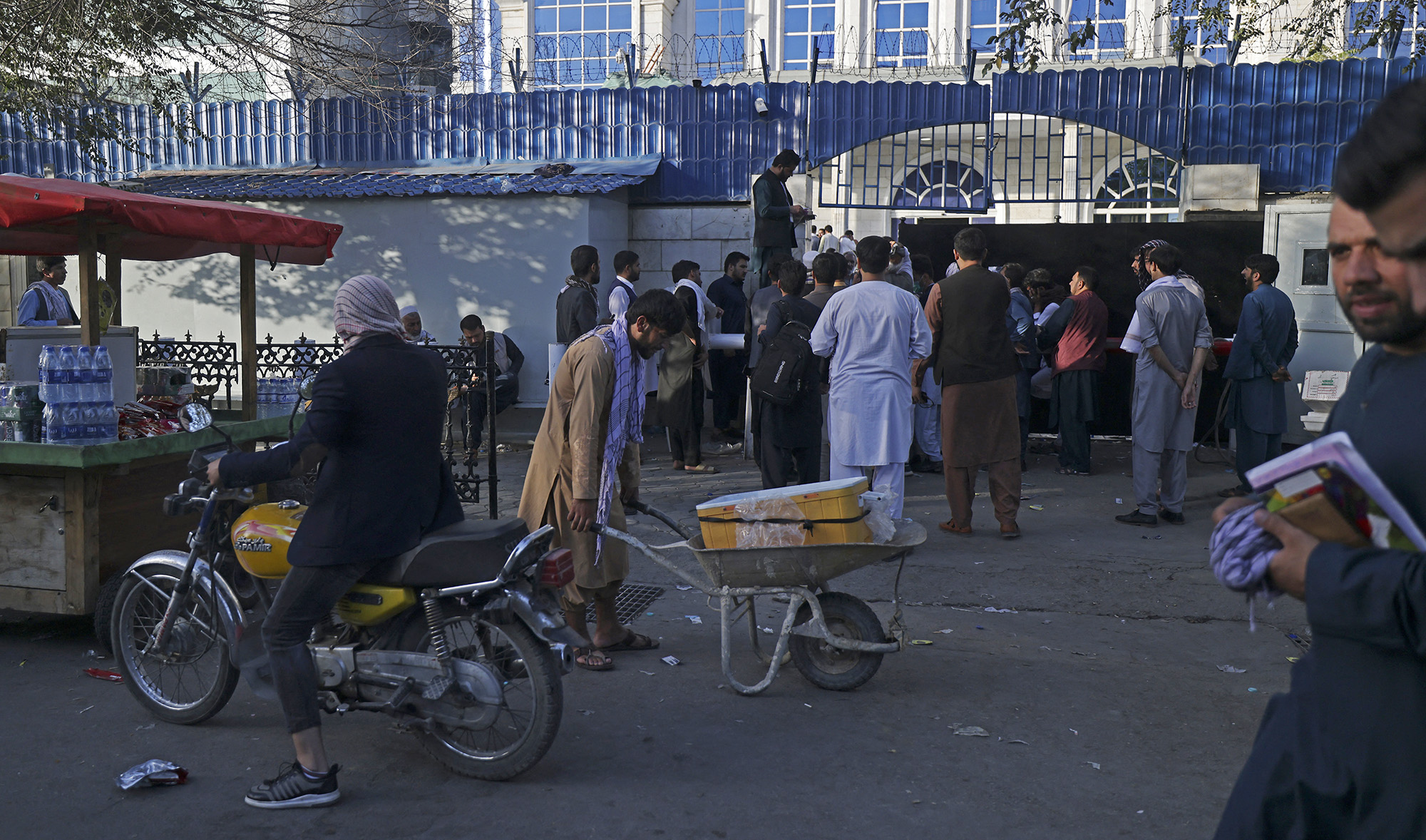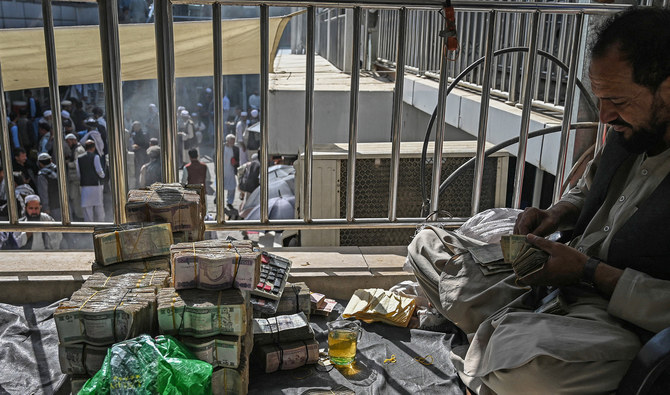KABUL: The continued US freeze on Afghan central bank assets is the main cause of Afghanistan’s deepening economic crisis, its finance ministry has said, as the country is on the brink of a mass starvation.
Afghanistan’s economy plunged into free-fall when its Western-backed administration fled the country in mid-August as the Taliban took control when US-led foreign troops withdrew from the country after 20 years.
The takeover prompted the US and allied countries to suspend billions of dollars in international assistance. The US froze some $9.5 billon in Afghan central bank assets and imposed sanctions on the Taliban, isolating the country from the global financial system and paralyzing its banks.
As assistance to the country’s aid-dependent economy has been suspended for nearly four months now and the new rulers have no access to its foreign reserves, UN agencies estimate 22.8 million Afghans, over half the population, are expected to face life-threatening levels of food insecurity.
A meeting of foreign ministers from Islamic countries will be held in Islamabad on December 19 to discuss the humanitarian crisis facing Afghanistan. The extraordinary meeting of the Organization of Islamic Cooperation (OIC) will include delegations from the European Union and the so-called P5 group of the United States, Britain, France, Russia and China also invited.
"The frozen assets are the main reason behind this economic crisis in Afghanistan. If the international community unfreezes the money, all problems would be solved," Ahmad Wali Haqmal, finance ministry spokesman, told Arab News earlier this week.
“I must say that $9 billion of international assets frozen made the situation so hard, and the financial system of Afghanistan is worsening,” he said, adding that the freeze has “no legal justification and is against international principles and laws.”

Men gather outside the entrance gate of bank to withdraw money in Kabul, Afghanistan, on September 14, 2021. (AFP/File)
As the international community has not recognized the Taliban interim government, Western donors have grappled with questions how to provide aid without granting the new regime legitimacy or putting money directly into the Taliban government’s hands.
But Haqmal said the frozen assets do not belong to Taliban authorities but to the Afghan people.
“The money belongs to the Afghanistan people, and we hope that this money will be given back to its owners without any conditions,” he said, expressing hope that progress will be made during a next round of meetings with US officials.
Taliban delegates discussed the issue with Washington representatives during two-day sessions in Doha, Qatar, last week.
“Some agreements were also made to step up the unfreezing of these assets, and we hope that we can manage another round of talks in this regard in the near future,” Haqmal said. “We are hopeful that during the forthcoming round of negotiations we would make more progress about this issue.”
As the date for the next round of talks has not been announced yet by any of the parties, across Afghanistan, millions of people have gone months without steady incomes while the prices of food have soared beyond the reach of most of them.
The country has suffered from food shortages for decades, but without aid and access to its foreign reserves the crisis has drastically worsened.
According to UN agencies, 30 percent more Afghans faced crisis-level food shortages in September and October compared with the same period last year.
The number of affected people is expected to hit a record high in the coming months as the country’s worst drought in decades has dwindled this year’s wheat harvests.
















